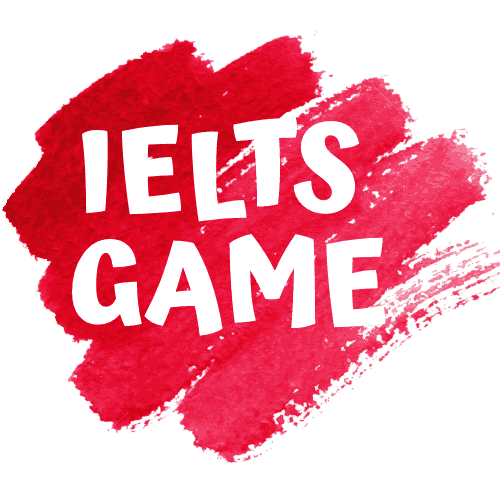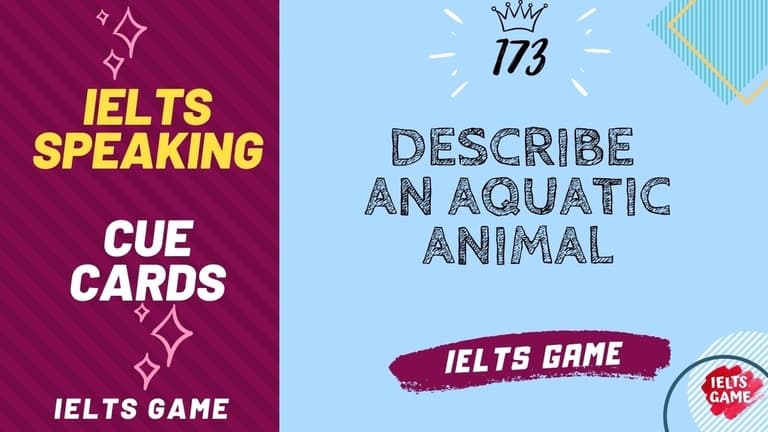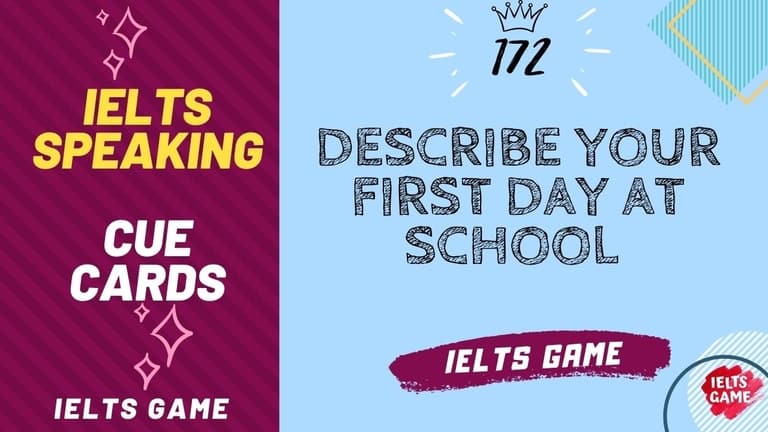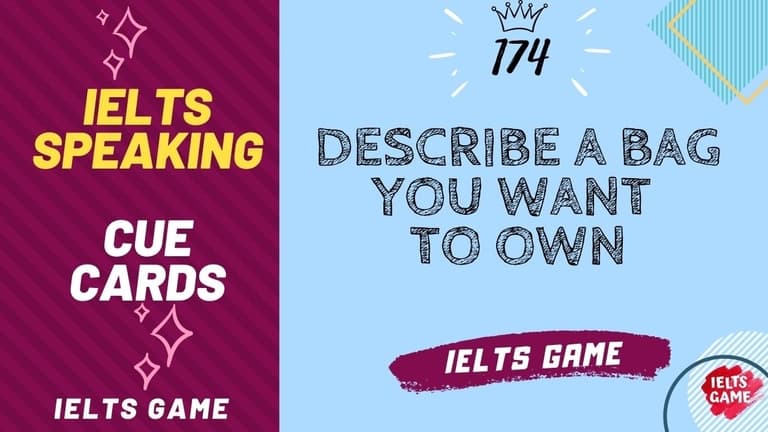173. IELTS Cue Card -
Describe an aquatic animal
In this article, IELTS Game will add number 173 IELTS cue card sample on the series of 2020 cue cards with band 9.0 model answers and part 3 follow up questions that will help you in your IELTS test preparation.
This cue card is related to “Aquatic Animal description” topic and asking you to “Describe an aquatic animal“ and asking IELTS speaking part 3 follow up questions from Makkar Jan-Apr 2021 cue cards guesswork.
IELTS Cue Card Sample 173
Describe an aquatic animal.
You should say:
- – What it looks like?
- – When you saw it?
- – Where you saw it?
- – Explain why it is interesting?
Band 9.0 Sample Answer Ideas.
• India has a diverse animal life.
• We have wild animals, domestic animals, and pet animals.
• I am going to talk about an animal, which I find very interesting.
• This animal lives in water but is not a fish
• It is a mammal – it is the dolphin.
• The first time I came to know about this animal was from the National Geographic channel.
• This river dolphin is the national aquatic animal of India.
• It gives birth to its young one and suckles to feed it
• It cannot breathe underwater so it has to come to the surface to breathe
• Even the little dolphin baby has to be pushed to the surface to breathe.
• Dolphins feed on most kinds of fish such as the snapper and the tuna.
• Dolphins are fast swimmers.
• They search their way through the sounds they produce, which is called echolocation.
• The dolphins’ sound waves hit an object and the echo bounces back.
• Most dolphins are peaceful and rather shy.
• So far humans have proven to be of greater danger to dolphins than the other way round.
• Marine dolphins are found in oceans and river dolphins are found in rivers.
• Just like the tiger is our national animal and the peacock is our national bird, the Gangetic river dolphin is our national aquatic animal.
• The Indian river dolphin is blind.
• It is found in the river Ganges.
• The female is about 9 feet long and the male is about 7 feet long.
• Unfortunately, our river dolphin is on the verge of extinction.
• But now the government has started taking steps to save it under the ‘Project Dolphin’
• Dolphins are important for maintaining the ecosystem.
• Recently I saw a Hindi movie Ajooba in which Amitabh Bachchan is rescued by a dolphin and he considers the dolphin as his mother.
• I came to know from that movie that dolphins are very intelligent and can be trained.
• So, this is the aquatic animal, which I find very interesting.
IELTS Speaking part 3 Follow Up Questions.
Here are some follow up questions you may be asked during part 3 IELTS Speaking exam by the IELTS examiner related to 1st cue card:
“Describe an aquatic animal”
1. Why do people like to keep pets?
Indian people like to keep pets because pets are wonderful companions. Pets, such as dogs give you unconditional love. They also provide security.
Some people keep pets in their homes to teach responsibility to their children.
People who suffer from depression are advised by their doctors to keep pets.
2. What should we do to protect endangered animals?
We should help the governments and NGOs by contributing some funds, however small they may be.
We should not do hunting and poaching of animals. We should educate those who are not aware of the importance of animals and the effects their extinction can have on us.
3. Do you support doing experiments on animals?
I do not support experimenting on animals, because nowadays, we can do computer simulated experiments to see the effects of drugs.
We should realize that animals are not humans and so any effect on them may not be there on humans. Moreover, animals are sentient beings and should not be disturbed for our selfish motives.
4. Why do some people refuse to eat animals?
Some people refuse to eat animals on religious grounds. Some people just don’t like the unnecessary killing of animals. They feel that plant sources can also provide them enough nutrients.
5. What would happen when some species disappear on earth?
It would disturb the ecological chain and would affect us directly or indirectly. We would also lose out on the diversity of nature.



